Optimism and Realism: The Importance of a Glass Half-Full
The research that led to our catalog of 41 Polaris® Competencies was based on analyzing objectively identifiable high performers. Our in-depth interviews with thousands of exemplary leaders revealed both a positive mindset (optimism) and a belief in their ability to affect change, leading to the competency Positive Impact. Optimism is contagious, and prophecies can become self-fulfilling. It’s much easier to follow positive leaders who believe their teams can make a difference.


